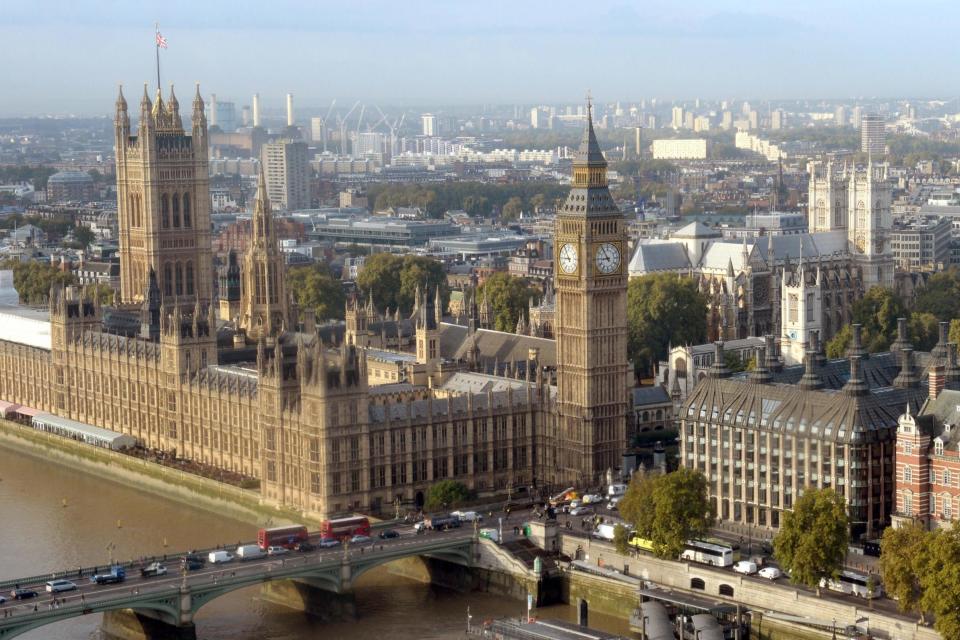Sex pests and bullies: John Bercow faces new pressure to quit over grope dossier

John Bercow was facing huge pressure to quit as Speaker today after a bombshell report savaged Commons chiefs for failing to tackle a culture of “bullying, harassment and sexual harassment”.
The 155-page dossier lifted the lid on allegations of abuse at Westminster by MPs and other staff.
It warned of a “culture, cascading from the top down, of deference, subservience, acquiescence and silence in which bullying, harassment and sexual harassment have been able to thrive and have long been tolerated and concealed”.
The report by Dame Laura Cox QC pointed the finger of blame at the Commons Commission, chaired by Mr Bercow, as well as the Speaker’s Office, the Commons executive board and senior officials for failing to do enough to protect people working at Westminster, particularly women.
Without naming anyone, Dame Laura said: “Within this culture, there are a number of individuals who are regarded as bearing some personal responsibility for the criticisms made, and whose continued presence is viewed as unlikely to facilitate the necessary changes.”
She added: “I find it difficult to envisage how the necessary changes can be successfully delivered, and the confidence of the staff restored, under the current senior House
administration.”
In a statement, the Speaker’s Office said: “This is a serious report into a ser ious subject which deserves a serious response.
The House of Commons Commission will meet as a matter of urgency in the coming days to consider the report and our response to it.” Some senior members of Commons staff were clearly stung by the criticism, the report added, and suggested that it was misplaced. But this was viewed by complainants as showing how they failed to grasp what was happening.
Dame Laura, a former High Court judge, also appeared to urge MPs and other individuals guilty of abuse to consider their positions. Some MPs were alleged to be “serial offenders” and some of the most serious allegations related to conduct when on visits abroad or when working on select committees. The list of sexually abusive behaviour includes:
Frequent inappropriate touching.
Repeatedly initiated physical contact, for example men grabbing women’s arms or bottoms or stroking their breasts or bottoms, patting their heads, putting their arms around them, leaving a hand on their knee for an uncomfortably long time, trying to kiss them.
Invasion of someone’s personal space.
Women being abused in vulgar, gender-related terms if they failed to do something that had been requested, or did it in a way that was considered inadequate or took too long.
Women being repeatedly propositioned; and similar allegations from some men.
Other behaviour alleged by members of House staff included frequent personal abuse, constantly criticising or making derogatory remarks about their work, shouting or speaking aggressively at staff, telling them they are useless and humiliating them in front of others, taunting, mocking or mimicking them and making offensive personal comments about their appearance or perceived characteristics, or questioning them repeatedly about their personal life.
They also included using offensive or discriminatory language about other staff or MPs, repeatedly subjecting individuals to lengthy and humiliating tirades of criticism and abuse in front of colleagues, and suddenly holding unscheduled meetings or making new demands at a time when they knew that staff had to leave because of childcare commitments. One victim told how they “felt physically sick… I would find myself crying in the toilets, I wasn’t able to eat or sleep properly and I began to feel consistently unwell.”
Members of staff observing such incidents described them as “very disturbing… I will never forget them” and a senior external contributor, witnessing such an incident, described it as “humiliating and mortifying to watch”.
A number of people, coming to work at the House after working in other organisations, described being “shocked by the almost God-like status accorded to MPs”.
The report took evidence from some 200 people. “The unhappy fact is that the overwhelming majority of contributions, from staff working across the House, reveal widespread, enduring and profound disaffection with a culture that is as embedded as it is shocking,” it concluded. “They indicate that bullying, harassment and sexual harassment of members of staff, both by other members of staff and by some MPs, has been known about and tolerated for far too long, despite efforts by some, including recognised trade unions, to persuade the senior administration to take it seriously.”
It warned “the acquiescence of senior management, the institutional minimising of complaints, the lack of effective procedures to address them, and lack of support for those targeted for such treatment has resulted in the stifling of potential, the blighting of careers and the loss of talented and dedicated employees, many of them women”.
House staff have warned of a “cover-up” by Commons chiefs and demanded a “seismic shift” to tackle the culture of abuse. Mr Bercow was spared an investigation early this year into allegations that he bullied members of staff, after MPs voted against a probe. He vehemently denied the allegations.

 Yahoo News
Yahoo News 